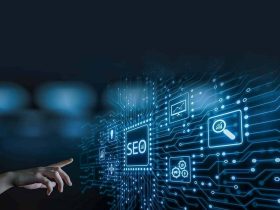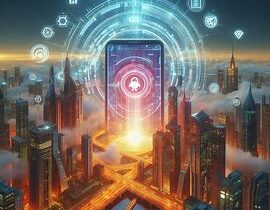. The next phase of the digital economy is approaching, and it may be built on the blockchain. Since 2015, when it became clear that the technology underpinning the relatively obscure. Concept of cryptocurrency could transform the financial system, blockchain technology has been rapidly gaining traction. By the end of 2016, major financial institutions such as Bank of America and Goldman Sachs had staked claims to promising blockchain technologies. They filing patents at a rate roughly double that of the beginning of the year. Blockchain development consulting companies have great rush of businessmen who want to enter into blockchain.
Blockchain-hero
As SAP and other global organizations consider all of the ways blockchain could reduce friction and risk in business transactions. Their Interest in the technology is not only growing, but also spreading beyond financial services. Some of the world’s largest companies are recognizing the possibilities. That inherent in the ability to maintain distributed, tamper-proof ledgers that permanently and transparently record transactions, from traditional vendors like IBM and Microsoft to leading consultancies like Accenture and Deloitte.
Despite how promising blockchain is already, the business world may be underestimating the extent to which it can transform transactions, organizations, and industries. It has the power to change the economic structure.
The digital economy is built on the foundation of reliable data and interactions. As the physical world becomes increasingly quantified, the ability to guarantee the integrity and provenance of digital and physical assets, as well as the transactions in which they’re involved, will become a key competitive advantage — and blockchain is designed to do just that. Distributed ledgers, smart contracts, and other blockchain technologies may serve as the foundation for combining and scaling other exponential technologies.
The basic concept is straightforward:
IoT sensors embedded in drones, autonomous vehicles, 3D printers, and augmented/virtual reality gear would collect and store data in blockchain-based decentralized ledgers. This information would be instantly verified and made available for use by any application. Smart contracts programmed into the blockchain would then use these vast repositories of real-time data to carry out business processes. Everything make even more automation by incorporating artificial intelligence into blockchain smart contracts, which would allow them to make decisions without the need for human intervention.
Here are just a few of the possibilities that a blockchain framework could enable in the future:
Democratized design and manufacture:
Individuals and small businesses would be able to play a larger role in the digital economy. If a blockchain-enabled design and manufacturing platform were available. Virtual reality products, as well as copies of existing objects scanned with machine vision, could be easily bought, sold, shared. Even digitally remixed at a low cost while maintaining intellectual property rights. This was true whether the work involved complex multi-material physical products created with distributed 3D printers or text, music, and images.Blockchain development consulting give the best option of designs and help in best manufacturing platform.
Autonomous logistics:
Intelligent, self-driving delivery vehicles could transport products and materials to their destinations or even create them on-site using onboard 3D printers, all while using blockchain technology to execute and verify each transaction. Smart contracts, which are also embedded in the blockchain, could be programmed with machine learning apps to optimize routing. The current centralized warehousing and logistics model may become obsolete as a result of this.
Distributed commerce:
By combining blockchain technology with virtual reality, 3D scanning and printing, artificial intelligence. Even self-driving cars, consumers could have immersive, personalized shopping experiences wherever they want. Shoppers could give vendors access to their purchase history, preferences, and other data stored on a blockchain ledger by giving them permission. Vendor AIs could then make more accurate recommendations and interact with ecommerce bots that automatically complete purchases. Customers would automatically receive offers for new styles, medication refills, or replacement parts without even realizing it. Buyers would be able to restrict access to their personal or proprietary data to specific organizations for a set period of time. Until the end of their shopping experience or the end of their fiscal year, using blockchain. Blockchain development consulting comes out with best idea of blockchain.
This may appear to be far-fetch speculation, but according to a provocative white paper publish by consulting firm Outlier Ventures Research, this shift is both inevitable and already underway.
Imagining the city of the future
The more technologies we link together using blockchain as a framework, the more value we can extract. Consider a city where every house or apartment has a digital presence that contains all relevant information about the home. Everything like property ownership and mortgage balance to transactional data like power use, real estate tax assessment, and past and current contractor relationships. The city could use this “digital twin” to more efficiently and accurately coordinate services and perform administrative tasks related to the property. The property owner would be able to conduct transactions such as renting a room or selling power generated by solar. Whose panels back to the grid in a secure and reliable manner. To reduce costs and improve energy efficiency, the city utility company could feed power consumption data into an AI generate energy-saving recommendations. Leverage smart contracts that automatically manage power consumption between smart appliances and the grid. Blockchain consulting company helps in giving wings to dream of blockchain project which shape their future.
City Development
This “smart city” could then begin to automate basic city services by combining multiple technologies. IoT sensors, for example, could detect a problem (such as a downed electrical cable) and alert the appropriate city agency’s AI to dispatch a technician immediately. The AI could use AR glasses to assist the technician in assessing the necessary repair. Sending part templates to the 3D printer in the technician’s truck, reimbursing the parts designer via a smart contract. Guiding the repair via the AR glasses before informing the city agency and property owner when the repair is complete.
Consider how you could apply that to the city’s broader infrastructure. At the airport, a business traveler boards an autonomous electric taxi and instructs it to take her to a meeting . Knowing that there has been an accident on the highway based on traffic sensor data. The car automatically chooses an alternate route that leads to the nearest parking lot with a charging outlet. As the car parks, it connects to an outlet, which bills the taxi company in real time for the amount of electricity required to recharge the battery. The traveler receives a push notification with a discount at the nearby coffee shop. As she exits the parking lot and connects to the city’s public wifi via a social media account. All these needs a wonderful blockchain system idea of whose depends on blockchain development consulting.
Meanwhile, city staff can monitor the taxi’s safe operation and ensure that the taxi company bills accurately for the ride. Check traffic conditions and send out notifications to all affected drivers, ensure that parking is available. Confirm the traveler’s opt-in agreement for city wi-fi, provide the coffee shop owner with information on the effectiveness of the day’s coupon.
Numerous options available.
When already exponential technologies intersect and combine, their disruptive potential increases by orders of magnitude. With blockchain laying the groundwork for this to happen, comparing the potential economic transformation to the Industrial Revolution isn’t entirely hyperbole. Companies, on the other hand, cannot simply wait for digital transformation to happen. Organizations must begin thinking about the likely consequences now, in a systematic and proactive manner. Creating scenarios for a wide range of possibilities prepares us to achieve the best possible results.








Leave a Reply